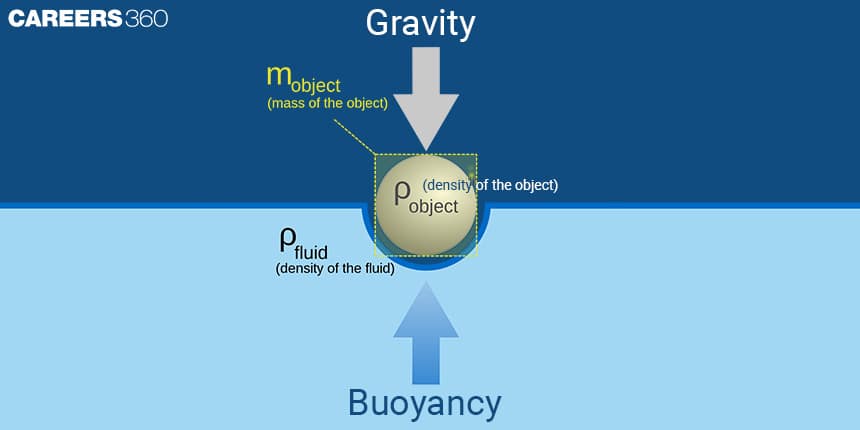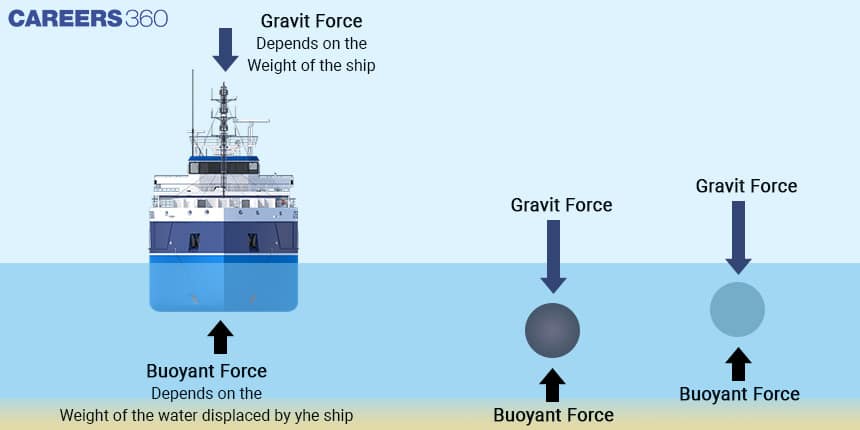Archimedes’ Principle Of Buoyancy – The Reason Why You Feel Weightless In Water
Have you ever experienced the sensation of feeling lighter when you enter the water? Maybe you've noticed that you can move more easily and effortlessly in the water compared to on land. This phenomenon is more than just a feeling; it has a scientific explanation. Buoyancy, water resistance, and psychological factors all contribute to why we feel lighter in water. Understanding the science behind this sensation can not only deepen our appreciation for the beauty of water but also provide insights into the many physical and psychological benefits of water activities. So, come let’s explore the science behind why we feel lighter in water and its practical implications in our everyday lives.

Buoyancy And Archimedes Principle
Archimedes' principle explains that a body immersed in a fluid experiences an upward force, known as buoyancy, that is equal to the weight of the fluid displaced by the body.
Archimedes' principle is often expressed mathematically as,
F_buoyancy = ρ *V * g
Where:
F_buoyancy = Buoyant force
Ρ = Density of the fluid,
V= Volume of the displaced fluid
And g = Acceleration due to gravity
This equation shows that the buoyant force is proportional to the density and volume of the displaced fluid, as well as the value of gravity, and explains why objects with greater volume and lower density are more buoyant in water.
Also Read - From GDP To Gini Coefficient: Understanding Economic Indicators Through Class 12 Maths

To explain the upward force of buoyancy experienced by a submerged body, we need to understand fluid mechanics. When a body is submerged in a fluid, the fluid exerts pressure on it from all sides. The pressure increases with depth and is higher at the bottom of the body compared to the top. This difference in pressure generates an unbalanced force, resulting in an upward buoyant force. This phenomenon is known as hydrostatic pressure and plays a crucial role in many engineering and physics applications.
Factors That Affect Buoyancy
Below given are some of the factors that affect buoyancy :
Water temperature: The density of water changes with temperature. As the temperature of water increases, its density decreases, and as the temperature decreases, its density increases. Therefore, the buoyancy force experienced by an object in water changes with the water temperature.
Salinity: The salt content in water affects its density. The more salt there is in the water, the denser it becomes. As a result, objects submerged in saltwater will experience a greater buoyant force than those submerged in freshwater.
Depth of water: The pressure exerted by water increases with depth. This means that the buoyancy force experienced by an object in deep water will be greater than that in shallow water.
The body's position in the water: The position of an object in water affects its buoyancy. For example, a person floating on their back will experience more buoyancy than when they are vertical in the water. This is because the surface area of the body in contact with water changes with position, affecting the volume of water displaced and thus the buoyant force experienced.
Apparent Weight
After presenting theorems, and equations, we can now understand why a body feels lighter when submerged in a fluid. The buoyant force, which acts in the opposite direction to the weight, reduces the net force acting on the body. The sensation of feeling lighter is the result of the buoyant force subtracted from the actual weight, which gives the apparent weight. In other words, the actual weight of the body remains the same, but the buoyant force reduces the force of gravity acting on the body, resulting in a change in the perceived weight or apparent weight.
The concept of apparent weight becomes more fascinating when you consider that you are constantly submerged in an "ocean" of air, which is also a fluid. The weight that you feel in your everyday life is actually your apparent weight. So, if anyone asks you whether you have ever been completely submerged in a fluid, you can confidently say that you are constantly experiencing the sensation of being submerged in a fluid due to the air surrounding you.

The principle of buoyancy also explains why objects can float on water. This is the reason why we are able to board boats and travel safely across the sea.
In conclusion, the feeling of being lighter in water is due to the upward force of buoyancy, which reduces the net force acting on the body. This sensation is further affected by various factors such as water temperature, salinity, depth of water, and the body's position in the water. Understanding the science behind this phenomenon can deepen our appreciation for water and its physical and psychological benefits.
Also Read - Why Do Trains Run On Metal Wheels And Cars Have Rubber Tyres?
Applications for Admissions are open.
As per latest syllabus. Physics formulas, equations, & laws of class 11 & 12th chapters
JEE Main Important Chemistry formulas
Get nowAs per latest syllabus. Chemistry formulas, equations, & laws of class 11 & 12th chapters
JEE Main high scoring chapters and topics
Get nowAs per latest 2024 syllabus. Study 40% syllabus and score upto 100% marks in JEE
JEE Main Important Mathematics Formulas
Get nowAs per latest syllabus. Maths formulas, equations, & theorems of class 11 & 12th chapters
